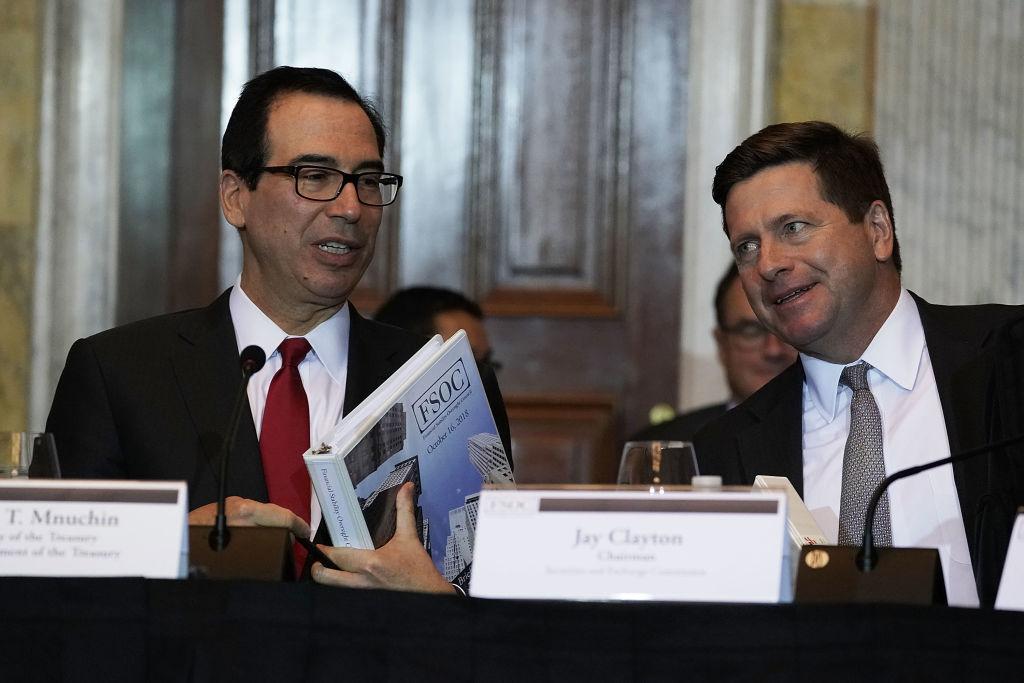Chinese companies listed on U.S. stock exchanges could soon be delisted for failure to comply with U.S. audit standards, after advisers to President Donald Trump issued a report on how to protect investors.
The report was compiled by the President’s Working Group on Financial Markets (PWG), which includes Treasury Secretary Steven Mnuchin and Securities and Exchange Commission (SEC) Chairman Jay Clayton.





